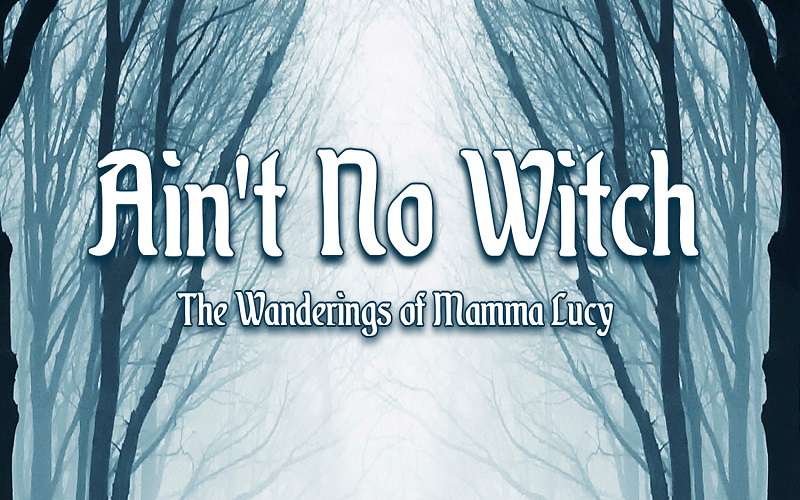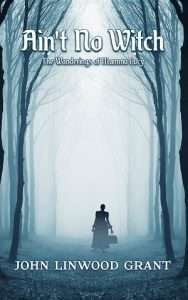Read This: Ain’t No Witch

Ain’t No Witch, John Linwood Grant’s new collection from Mocha Memoirs Press, is a sharply rendered portrait of a certain time and place, told through the experiences of his character, Mamma Lucy. Tall, barefooted, old yet ageless, with an eye that can see beyond this world, Mamma Lucy is an eminently capable rootworker and hoodoo woman. But as she is quick to remind the folks she helps, she ain’t no witch. Drawn to those in need, Mamma Lucy confronts restless ghosts, weird gods, and twisted mortals, some of whom have learned to wield her kind of power.
But none can wield it as well as she does.
Grant sets his sixteen stories and vignettes in the United States in the early 1900s, when magic often seems to be the only thing that can protect recently-emancipated Black people from the entrenched ugliness of Jim Crow and the lingering poison of slavery. Although humor runs through some of the tales, others are full of righteous rage at the cruelties this country has allowed.
***
 “Down At The Crossroads” – an intriguing introduction to Mamma Lucy and her talents, and the old, old power she calls the Dark Man.
“Down At The Crossroads” – an intriguing introduction to Mamma Lucy and her talents, and the old, old power she calls the Dark Man.
“Pine In The Soul” –zombies trapped by an enslaver who isn’t done being one, no matter what the law says.
“On The Seventh Day” – a white man tries to cheat a Black man, and is made to see the error of his ways.
“Whiskey, Beans And Dust”–a call for otherworldly vengeance meets the protective power of Mamma Lucy.
“Iron And Anthracite”–a cursed man threatens to take a train full of souls to purgatory with him.
“The Wrong Kind Of Wood” –a young girl is stolen, and Mamma Lucy uses the power of ancestral threats to bring her home.
“The Witch Of Pender” –an evil man tries and fails to use witchcraft to cover his sins.
“Boojum” – Mamma Lucy opts for a mundane but extremely effective way to dispel a monster.
“Have You Heard?” –a dead woman’s rage threatens the lives of every mother in the community.
“Stooped” –a white preacher tries to put the fear of god into Mamma Lucy, and is defeated by her deeper faith.
“Low Like Ahab” –an old plantation house lays its own curse on the last of the family
“Elders” –a brief encounter with witches in New England
“Snake Hill Blues”–Mamma Lucy is ready to leave Harlem, but there is a vampire to hunt before she goes.
“Mister Aloysius Clay”–Mamma Lucy ensures that the last words a vicious racist hears are the truth about what he is.
“Under The Ridge” –a white woman’s lie, a black man’s murder, and an old conjure woman willing to pay a heavy price to stop any more bloodshed.
“Dark Man Standing”–a few last tantalizing details about Mamma Lucy, but none that answer the mystery of her.
***
Grant’s vividly-realized storytelling rings viscerally true. From angry ghosts to haunted Southern Gothic, from base desires to cosmic threats, Ain’t No Witch’s Mamma Lucy moves through the dangerous racial politics of a time that is closer than we care to admit. In her, Grant gives us a formidable woman, pragmatic, mysterious, and perhaps not entirely of this world. She can’t right every wrong, but she can certainly make the wrongdoers know that they have been seen, and marked, and that they will not ever be free of their stain.
We need more like Mamma Lucy, and I recommend this collection highly.